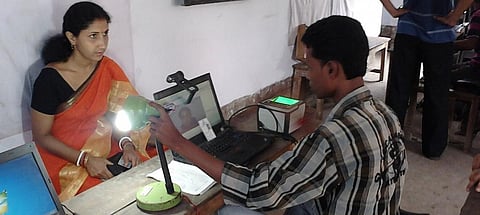

In a landmark judgement on September 26, the Supreme Court upheld the constitutional validity of Aadhaar by a 4:1 majority, terming the biometric scheme as “useful for empowering the marginalised”.
With its judgement, the five-judge constitution bench comprising of Chief Justice of India, Dipak Mihsra, Justice A K Sikri, Justice A M Khanwilkar, Justice D Y Chandrachud and Justice Ashok Bhushan threw several suspicions related to privacy, security, exclusion due to Aadhaar out of the window.
It was on May 10 this year that the bench had reserved its judgement, after a long hearing of 38 sessions.
On Wednesday morning, when the verdict finally came, it was a mixed picture for petitioners and those opposing Aadhaar.
On the one hand, the verdict struck down Section 57 of the Aadhaar Act, denying corporate entities or individuals from demanding an Aadhaar for any services. As a result, cell phone companies, private schools or offices can no longer force individuals to furnish Aadhar. The apex court has also stated that Aadhar won’t be mandatory for opening bank accounts. This is a big relief as despite the apex court’s restriction, banks and mobile companies like JIO, Airtel and Vodaphone had been asking consumers to furnish their Aadhaar, as had banks.
On the other hand, however, the court has allowed the Centre to use Aadhaar. Every Indian would need a 12-digit unique identity number or Aadhaar to file his/her income tax returns.
This had been a major bone of contention in the past with campaigners citing privacy concerns. The Supreme Court of India itself had tried to restrict the government from not making the Aadhar mandatory for any services. Today, it finally gave the government the go-ahead
Among the five judges, Justice Chandrachud was the dissenter. He said that as Aadhaar had been seeded with every database, it had become “a bridge between different silos”. He added that Section 7 of the Act suffered from “over breadth” as it used services and benefits to enable the government to regulate every facet of a person’s life.
In reference to government efforts to weed out corruption, he said that the legitimate aim of the state could be fulfilled by using less intrusive methods.
Justice Chandrchud stated that the architecture of Aadhaar posed “a risk of surveillance”. His judgment concluded that the Aadhaar programme violated informational privacy, self determination and data protection. It has led to the exclusion of beneficiaries as well, he said.